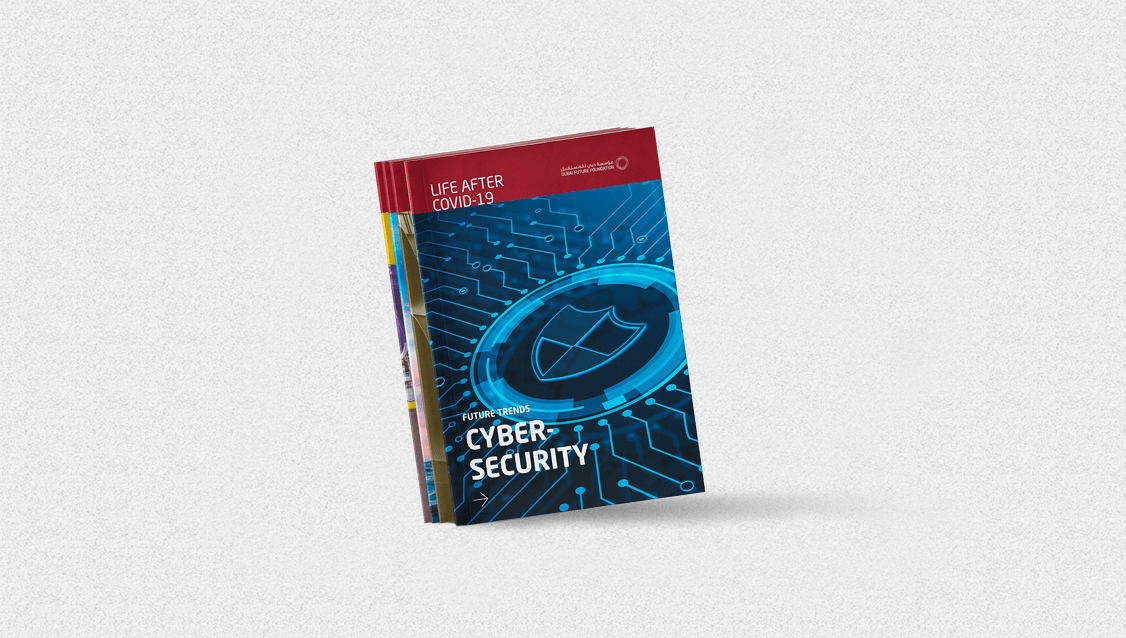Dubai Future Foundation (DFF), has put cyber security under the scanner in its eleventh ‘Life After COVID-19’ report, to acknowledge the surge in cyberattacks worldwide following the outbreak of the pandemic and the growing dependence on digital infrastructures. The consecutive series of reports anticipates the future of vital sectors in the aftermath of the ongoing global coronavirus crisis.
The latest report ‘Life After COVID-19: Cyber Security’ attributes the rise in cyberattacks amid the global outbreak, reported by countries worldwide, to the increased vulnerability of digital infrastructures to opportunistic hackers looking to exploit this digital dependency, even while IT departments and IT security teams continue to work remotely.
The report points out that phishing emails alone have surged by over 600 percent since February 2020, with attackers targeting individuals and institutions through email hacking and suspicious links, seeking to acquire log-in details and financial information, according to Barracuda Networks, a worldwide leader in security, application delivery, and data protection solutions.
An article in Intelligent CIO, a technology intelligence platform aimed at the enterprise IT sector to provide targeted updates and research-driven data, noted that the global pandemic has led to the creation of more than 100,000 new COVID-19 web domains that need to be treated with caution, although not all of them are malicious.
The report highlights the healthcare sector as among the most vulnerable to cyberattacks in the prevailing landscape during the global health pandemic. Hospitals, medical centers and public institutions worldwide are the target of, primarily, ransomware attacks. Healthcare professionals require digital infrastructure to treat COVID-19 patients and manage the crisis and cybercriminals are exploiting this necessity, confident that organizations will have no choice but to pay to re-enter their systems. In addition, cybercriminals are also using the health crisis to sell fake medical supplies. Referencing an article disseminated by Law360, a subscription-based legal news service, the report notes that several scams involve individuals or entities impersonating government officials, claiming COVID-19 medical breakthroughs and promoting sales of bogus or non-existent medical products.
Amid the global crisis, the financial and oil sectors are also vulnerable and incurring huge losses from cybercrimes. In the UAE, the report states that the Central Bank of the UAE has warned customers to beware of fraudsters looking to hack into bank accounts. Throughout the MENA region, several oil companies have been targets of phishing emails, purportedly sent on behalf of a real oil and gas company. In most cases, the hackers are looking to acquire personal or sensitive data on individuals and oil production, information they can then sell on the dark web.
However, such break-ins are not limited to governments or organizations. With the global shift to virtual meetings and conferences, video conferencing platforms are also at risk. With so many people congregating on these platforms for meetings, classes, appointments, virtual family get-togethers and commercial purposes, some of the leading platforms have lately reported security breaches.
The report points out that online gaming platforms are also increasingly the target of cyberattacks. With a surge in the number of Nintendo accounts created during the work from home and lockdown period, cybercriminals attempt to hack into the network to acquire personal financial information.
In April 2020, Google and Apple both released statements assuring users that their contact-tracing system is encrypted and that the Bluetooth connection used to track locations is too strong for hackers to break through to obtain location and device details.
The report also documents that new technologies are being leveraged continuously to keep cybersecurity platforms up to date and mitigate the risks. Several intelligence agencies worldwide are now exploring the adoption of artificial intelligence (AI) to counter cyber threats. Machine learning is also a powerful solution to analyze data sets and identify patterns and connections in attacks at far greater speed than intelligence officers can do through conventional means.
For the short term, the report predicts that with IT security staff working remotely and unable to detect cyberattacks as efficiently, given that employees are no longer using unified servers when working at home, new measures may need to be urgently put in place. Government entities may consider implementing AI-based cybersecurity systems to provide ongoing analyses of cyber threats and potential attacks.
In the long term, the report anticipates that as technology advances, cybercriminals and their attacks will become more sophisticated and difficult to combat. Quantum computing will ultimately become a critical factor in cyber security to help analyze and repel attacks within seconds.
Dubai Future Research, an initiative by Dubai Future Foundation, has issued a series of comprehensive and forward-looking reports that tackle the challenges arising from the emergence of the novel COVID-19 pandemic, positioning itself as a source of insight on the future. The series aims to introduce trends, insights and technology that can support key sectors in Dubai and the wider UAE to navigate and anticipate the future more efficiently, in light of the current health crisis, through highlighting opportunities and providing recommendations for the short- and long-term period.
